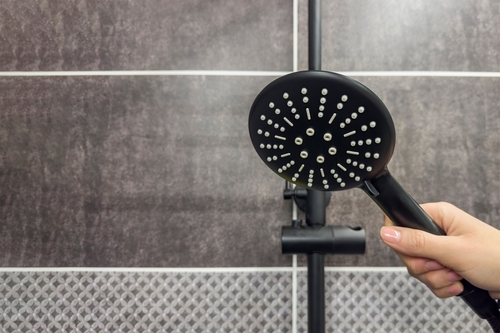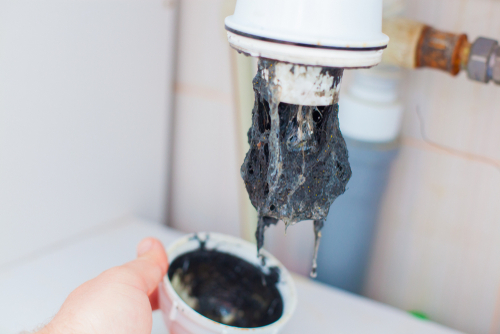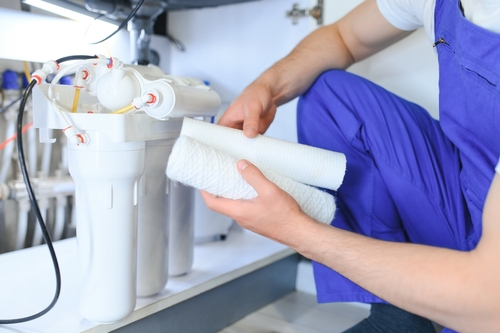
Pros & Cons On Using PVC In Plumbing
November 10, 2019
Plumbing Tips And Tricks
November 10, 2019Basic Plumbing Tips That You Can Learn

Do you need to call a plumber to every plumbing and heating problem in your house? Of course not, as long as you have proper tools for the job. Of course, if the problem is too huge to overcome, you should call a plumber who will help you, but minor faults can be easily repaired without any expert knowledge – you just need to have some free time and a bit of manual skill.
And here are some tools that will help you in your efforts. It’s worth noting that they will also be very helpful in other DIY jobs in your house. Let’s take a look:
Pliers and wrench – obvious and always useful. Make sure to have a couple of different sizes.
Tape – there are special plumber tapes (aka “Teflon tapes”) available in DIY stores which will help you cover leaks and give you some more time to work on the problem at hand. Don’t rely on it exclusively – taping a problem is not fixing it, it only postpones it.
Putty – when the tape is not enough. It is always good to have a bit of it in your toolbox to cover the leaks that cannot be covered in any other way.
Caulk – you may also know it as “Sealant” and its purpose is pretty obvious. Caulk is useful not only in plumbing but in all house repairs and you should always have a steady supply.
Pipes – of course! You should check what type of plumbing pipes you have in your house to be able to repair them. As such, buy a bunch of replacements for your pipes to be ready when the problem appears.
What skills should you possess to effectively perform minor repairs in your house Aside from a little bit of manual skill mentioned earlier, you have to know the basics of how the plumbing works. First of all – a common knowledge of the wrench-turn directions. In almost any other line of work, you know the simple rule – “righty tightly, lefty loosey”. In plumbing, the directions are completely opposite, meaning that you turn left to tighten the screws and right to loosen them. Never forget that!
Secondly, always turn off the water in your house before you start any repair, even the most minor one.
And last, but not least, when you’re in doubt, always call an expert – there is no shame in asking for help when you’re not able to do something.
12 Emergency plumbing tips before the plumber come
Plumbing nuisances in your bathroom, kitchens and other areas can cause great havoc and panic too. Water spilling all over the surface or no abrupt shortage of water supply is just some of the symptoms that can hinder your routine. is known for one of the most optimized plumbing networks in the world. However, they are still vulnerable to delve into inconsistencies. Of Course, it’s a wise step to approach professional emergency plumbers in , you can still contribute by taking some basic troubleshooting measures meanwhile the team arrives.
Shut down the water supply
The first, the most effective step would be closing the water supply from the main tank. This will ensure stopping of overflowing drains, running taps and showers. Close all the knobs that run water to the entire house or establishment and clean as much water as you can.
Try cleaning the drains yourself
More than 50% of blocked drain cases have been found to have rectified flowing basic measures. Try your hand too. Get a plunger and pull out as much dirt water as you can. Also, sneak a drain snake down the pipeline and penetrate in the garbage that has accumulated. It’ll either help to clear the drain or complete 50% of the task your plumbers had to do.
The overflowing toilet
As soon as the toilet shows sign of overflowing, run cold water in all nearby sinks and tubs. This will disconnect the water supply to the toilet at the backend. Before your plumber arrives and the water supply is slowed down you can utilize the time to clear the blockage using a plunger. You may also use a flange plunger.
Treating frozen pipes
Frozen pipes are one of the most critical plumbing nuisances that can happen to you. If left unchecked for long, they can result in bursting. However, they can be treated using tools we use for other purposes in our routine lives. Use a hair dryer to kill the ice. Also, a heater nearby will effectively help. However, you may have to keep a check on the extent of heating. Use these devices for 10 – 15 minutes only.
Dripping faucets
They appear less dangerous but result in excessive water wastage. It’s a wise approach to get them repaired. The only home remedy here would be turning the taps off until your plumber arrives. Prefer using a new faucet in case the internal damage is more. In case the faucet has completely damaged and the taps are running water continuously, shut the water from the main supply.
Using Tapes
While your plumber is on his way for a permanent fix, you can use a variety of tapes to keep the leakage and water spilling in control. Duct tapes, Teflon tapes, and others can be useful.
These are some of the basic remedies you can use for a temporary control. Make sure you contact professional emergency plumbers who can delve deep into the problem area and execute a substantial solution.
In conclusion
If you already work as a plumber but without any qualifications it would be a very good idea to contact your local college and attain an industry recognized award. This will give you an even greater scope for your future employment. You could work in the field of heating and ventilation, gas servicing, bathroom and kitchen fitting or refrigeration and air-conditioning. Promotions could include moving into contract management.
Another option would be to go into self-employment. This has the additional benefits of working hours to suit your needs and working from home. You could start by offering your services to your family and friends and asking them to recommend you as word of mouth is a great advertising tool. You could then place adverts in local papers and in the local shops and libraries to get your name known. Handyman services are always needed and you may even want to consider designing your own website so that customers can contact you directly.



